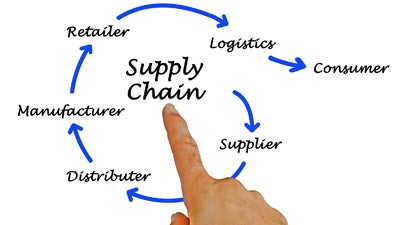Surviving Inflation & Supply Chain Challenges: 3 Small Biz Resources
By: Andrew Deen

Life hasn’t been easy for small business owners since the start of the pandemic. Regulations have changed, customers have been more selective with their expenditures, and supply chain issues have made it difficult to stock certain items.
The new inflation situation isn’t making things any easier. Fortunately, there are still ways small businesses can survive and possibly even thrive in this difficult financial climate.
In this article, we examine three strategies you can implement to offset the pains of inflation and supply chain issues.
The Problem
Supply chain issues have been making it hard for businesses and consumers to get the products they need since the start of the pandemic. Not only has this led to delays and item scarcity, but it has also increased the prices of many common goods.
Now, the United States is in the middle of high inflation rates— an issue that has the dual effect of making it more expensive to run a business while also making consumers more conscientious about their spending habits.
Consequently, expenses are up. Revenue may be going down, and businesses everywhere are scrambling to make sure they have the resources they need to thrive even in the very tumultuous conditions of the present.
Below we highlight three ways businesses may be able to navigate these problems.
Data-driven Supply Chain Management
Businesses have had to get creative about their supply chain management since the pandemic. In a world where a single Covid outbreak at a remote factory can disrupt supply chains in multiple nations, the need for backup options has never been more apparent.
Data-driven supply chain management makes it easier to locate alternatives. Data can also be used to forecast potential problems (i.e. bad weather, or even the potential for heightened risks of infection) and, on the transportation side of the equation, it can make goods more affordable to ship.
Data-driven transportation companies can use their information sets to identify the most expedient routes, keep cars in tip-top shape, and, in short, identify the most affordable and sustainable ways to get things where they need to go.
For businesses, this means fewer disruptions. For consumers, it means the ability to get the things they need, when they need them.
Raise Your Prices Intelligently
Raising your prices is a normal, even necessary component of surviving inflation. Your costs are up. You have to recuperate the outgoing money somehow. Raising prices is the easiest and most sensible way to do it.
You just have to be strategic.
Raise your prices gently on select products. Your customers are very aware of inflation. Most will expect to encounter higher prices and they will tolerate them to a degree. However, if you do dramatic, across-the-board price lifts, you’re going to turn some people away.
Instead, figure out what products or services have the highest impact on your bottom line, and do moderate price increases on those.
You can even be direct with your customers about it where appropriate. For example, some businesses run “Last chance” pricing campaigns in which they notify customers that their prices are about to increase and that they have a limited time to buy at the original rate.
These strategies have the potential to work because they are perceived as transparent and because they have the potential to generate an increase in sales at a time you really need it.
As you are reexamining your pricing structure, also take a look at what services or products aren’t yielding an adequate ROI. If you can pare down your expenditures it may reduce costs and, consequently, reduce your need to raise prices.
Rexamine Your Finances
It can also help to have at least some financial fluency at your disposal. Of course, business accountants can be a valuable resource when it comes to navigating difficult financial climates. However, most small businesses will still benefit significantly from having enough financial skills to at least understand their financial situation, and be able to recognize opportunities to cut expenses or refinance debt to make it more manageable.
There are many programs and educational resources available that make handling your own finances easier than ever before. The more you know, the better positioned you will be to consistently make the right financial decisions for your business.
2257 Views












